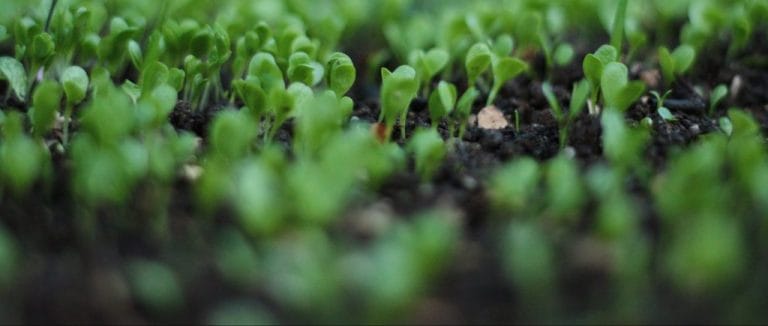I wanted to start my health blog journey off with a topic that will come up very often – the gut. The gut is at the forefront of most health issues and it’s necessary to address the importance of a healthy gut. A healthy gut reduces the chances of contracting many ailments. A poor functioning gut has been associated with increased risk of cancer, viral infections, allergies, skin conditions, inflammatory diseases, anxiety and stress. It seems that everything leads back to the gut in the end.
“ALL DISEASE BEGINS IN THE GUT”- HIPPOCRATES

What is leaky gut?
The medical term for leaky gut is called intestinal permeability. It means that large particles are entering the bloodstream through our delicate gut lining. This causes an increased risk for food and chemical sensitivity because the damaged barrier allows these large compounds into the bloodstream causing an inflammatory response. In addition “if the gut lining is not sound, the gut bacteria have less space to proliferate and grow, which means you will have less defense mechanisms against bad bacteria and less space to absorb nutrients” (Miller, The Anti-Anxiety Diet, p,60).
Every time we ingest food, our body must discern what is friend and foe! When pathogens slip through our gut lining, our immune system goes into action to neutralize the foe quickly. However, when the tight junctions of the lining start breaking down consistently, that’s when leaky gut develops over time. In short, leaky gut symptoms are a consequence of intestinal tight-junction malfunction!!

What led to a leaky gut?
The term leaky gut has been tossed around quite a bit and it has been a hot topic the past few years in holistic and functional medicine. To better understand it, let’s back-track a bit. And by a bit, I mean all the way back to our birth.
One very undermined factor leading to digestive issues in early adulthood is the growing popularity of cesarean sections in the Western world. When we are born, bacterial exposure is crucial for the proper colonization of our gut lining (mucosal tracts). During a natural birth, the baby is exposed to healthy bacteria from the mother’s vaginal fluids. In contrast, cesarean section babies are first exposed to environmental bacteria from the hospital. It is this initial colonization that will establish overall immune health, including proper gut health. As the baby grows, dietary bacterial influences promote the growth of positive and repress negative strains of bacteria. One of the earliest sources of this positive selection is through maternal breast milk. Breast milk is rich in short chain fatty acids (SCFAs) which feed the good bacteria and also passively transfer maternal antibodies to the baby, reinforcing and strengthening the immune system.
A second reason why leaky gut arose is due to the fact that many years ago our sources and types of food consumption started changing. You’re probably thinking, “when did this happen?” Well, it began during the industrial revolution when mass production and packaging came about and people started pulling away from supporting small local food production. According to The British Museum, “new tools, fertilizers, and harvesting techniques were introduced, resulting in increased productivity and agricultural prosperity.”

This is where the topic of organic and non-organic arises. Let’s briefly go over this and I’ll explain why this plays a factor in leaky gut. The difference between the two is really how the food is produced. When we constantly consume foods that are sprayed with pesticides, that toxicity eventually builds up and wreaks havoc on our gut immunity! This is why it is important to support and buy locally grown food. Here are quick definitions:
Organic:
- Grown without the use of synthetic (man-made) fertilizers, pesticides or herbicides
- Instead they use local and natural pest repellents
- Do not need preservatives to keep it fresh for long travel distances
Non-Organic:
- Use pesticides to preserves the life-span of the produce
- Needs preservatives and other chemicals to keep its freshness until it’s delivered to its location
Locally grown food: Locally grown food is a broad term that describes food that was grown within a geographical region that could be considered local to your particular area. Whether it’s within your county, city, neighborhood or even your own backyard, locally grown food can take many forms as defined by Arrowquip.
In addition, because the food was being mass produced, in order to keep food fresh, products were mixed with toxic additives and chemicals that prolong their shelf-life. It is known that the “chemical components from packaging can migrate into foods, but the question of how much migration occurs and what the potential health effects may be are gaining more attention from researchers and regulators. Different types of packaging materials pose different potential chemical exposures” states an article by Environmental Health.

For example, some of these food and beverage packages contain bisphenol A (BPA) which adds insult to injury as a contributor to leaky gut. Just think about your daily routine, breakfast can be cereal or toast (which is packaged in plastic), your morning cup of joe from your favorite coffee shop is in plastic, then your canned tuna lunch with veggies and dip and plastic water bottle or soda can is packaged…see the trend here? We may not even be aware of how much packaged or processed foods we eat!
How do packaged goods translate in our body? Because most of these packaged goods have a high-carb count, the body has learned to use glucose (carbohydrates) as a source of fuel. This unfortunately leads to extreme insulin spikes and high imbalances of satiety signals. All of these contributing factors can lead to a multitude of health concerns such as neurological disorders, hormonal imbalances, diabetes, behavioural conditions, cardiovascular disease and increase our chances of cancer.
I know it may seem that we went a little off topic but I promise it all ties back to the gut. Let’s paraphrase quickly what you’ve learned. We now have a better understanding that leaky gut is when our tight-wall junctions aren’t in their optimal state and allow larger particles to seep through. We’ve learned that natural births and breastfeeding play a huge impact on setting us up for healthy gut bacteria and provide the building blocks of a strong immune system. We’ve learned a little bit of the evolution of packaged goods and their negative health effects and why supporting local organic produce and eating whole foods is a healthier option!

Next week we’re going to talk about basic gut anatomy. We’ll get a better understanding of how our system works and why taking care of our gut is vital!
By the way, if you’re interested in supporting local markets, I have written down the names of a few here in and around Montreal. If you know of any other ones please let me know!
- 440 West Market (Laval)
- Marche de L’Ouest (West Island)
- Jean-Talon
- Atwater Market
- Mac Market (St-Annes)
- Les Jardins Carya (senneville)
- Marche Des Eclusiers (Old Port)
- Lufa Farms (organic co-op)

